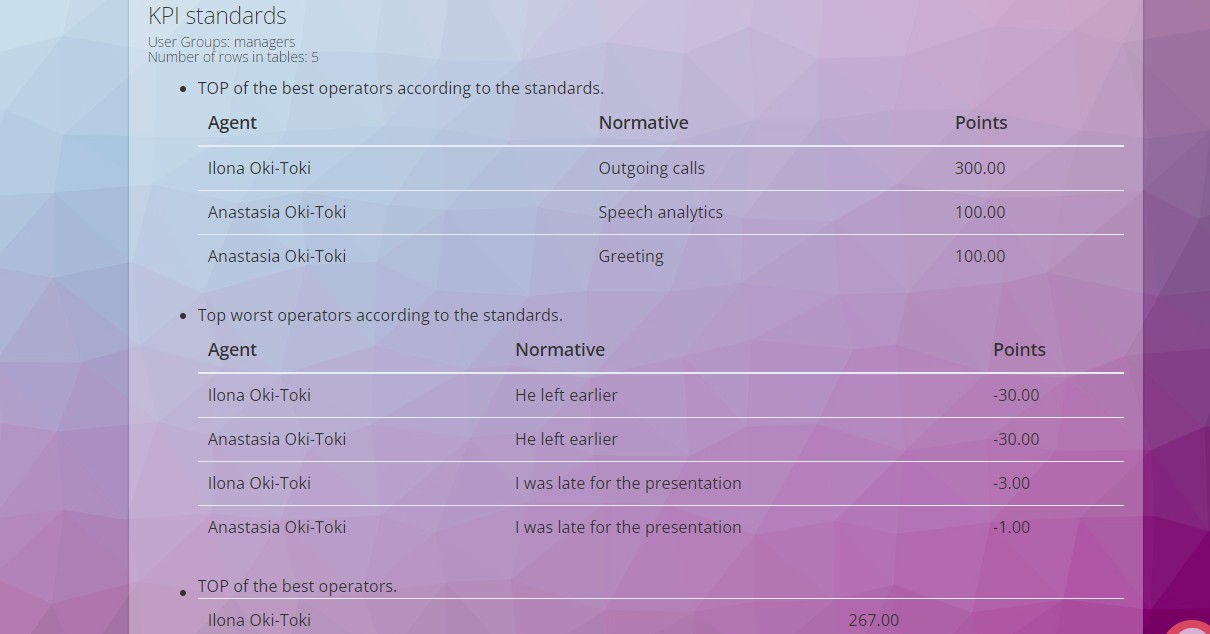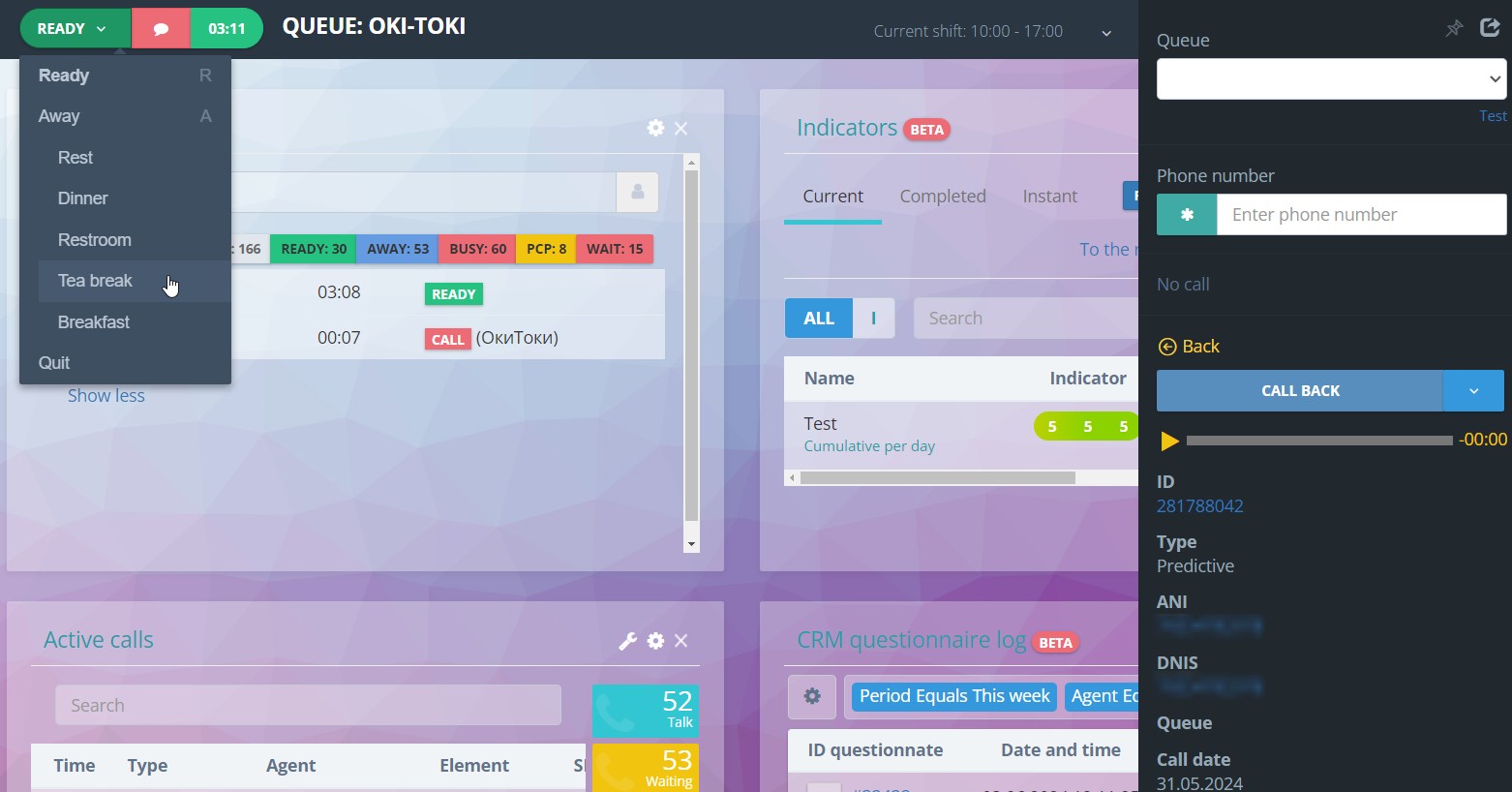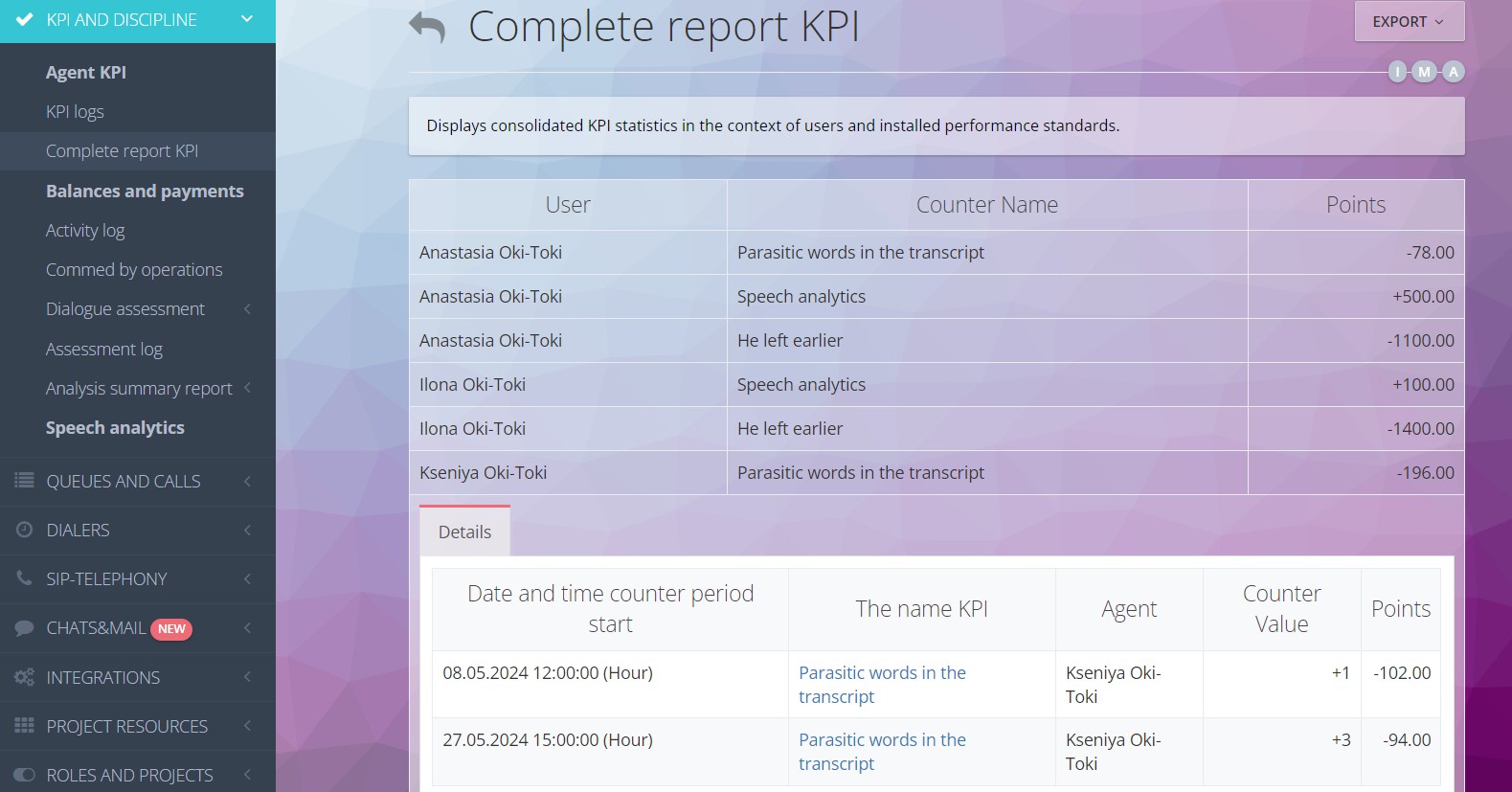“Bad” is a very subjective concept, but many employees may not perform at their best. There are various reasons why a call center agent may not meet expectations, and in this article, we tried to figure out what to do about it without resorting to drastic measures. First and foremost, it is necessary to understand what causes the situation when an agent is not coping with their work, for example:
- Lack of training and education;
- No motivation or interest in work;
- Inability to solve customer problems;
- Lack of quality control or feedback;
- Personal issues that interfere with work;
- Little time to rest between calls, fatigue, etc.
Why are agents “bad”?
Agents may not feel engaged in their work due to insufficient feedback or poor career growth opportunities. Most people do not go to work with the intention of performing poorly, so it is not appropriate to make assumptions about the reasons behind the problem. It’s about understanding what is happening with this employee, establishing contact, and finding out their personal motives.
This can be quite difficult to figure out, as the problem may have various sources. For example, an external factor that is beyond control, or the agent may lack confidence and need additional training. Therefore, it is important for the team leader to find out what is really going on in each specific case.
Proper employee selection
Having an agent in the company who does not meet expectations may be due to improper staff selection. Was he really fit for this role? Sometimes candidates are not carefully selected, leading to a mismatch between their skills and character and the job’s requirements.
It is important that agents have not only technical skills but also certain personal qualities, such as communicability, empathy, patience, and the ability to effectively solve customer problems. If candidates do not meet these criteria, they may be unprepared for the role of call center agent. This can lead to general dissatisfaction among both employees and customers.
Is the problem really starting during the hiring process?
The answer to this question will help look not only at individual people but also at broader business issues, especially if this becomes a recurring problem. It is quite possible that there were difficulties during the hiring and onboarding process, so some responsibility may lie with the management. If during the interview process, candidates are sold a dream that does not match reality, their first day will be the start of ongoing problems. As a result, employee motivation can decrease and trust in the company will be lost.
Step 1. Find a solution that works best
To start with, you need to identify what actions will best fix the situation and help the agent improve their work.
Think about different ways to help: training, motivation, changing the schedule or working conditions. For example, team building or collective work can be used to strengthen team spirit and unite employees. Such events help agents understand each other better, develop trust and respect in the team, which promotes more efficient cooperation and problem-solving. This will help create a positive atmosphere, increase motivation and engagement.
The second option is “stress management”, i.e., providing strategies for stress and emotion management so that the agent can cope with the workload and pressure.
More details in the article “Motivation of an agent after an angry call”.
The third option is improving communication and feedback. Give agents the opportunity to share their thoughts and ideas on improving the workflow, creating an atmosphere of trust. Feedback will help identify problems and improve work results, as well as ensure more effective teamwork.
Step 2. Plan an additional check
Conduct an analysis of agents’ work to find out what difficulties are most often associated with their work. In Oki-Toki, there are many tools that can help with this:
- Dialogue evaluation – a tool for creating assessment sheets to check employees’ communication with customers. With their help, you can study dialogues, rate the work, analyze calls, and make adjustments. In Oki-Toki, every call is recorded and displayed with a transcript, which helps to identify the strengths and weaknesses of each agent.
- KPI Standards (Key Performance Indicators): with Oki-Toki, you can track KPIs such as waiting time on the line for customers, the number of missed calls, tardiness to shifts, and others. This helps determine how effectively call center agents are working and identify areas that need improvement.

- Speech analytics – automatic call analysis without listening to each dialogue. This tool records the agent’s pronunciation of certain words (hello, please, promotion, etc.), uses speech recognition, and helps to identify errors in calls.
Step 3. Training and Coaching
One of the reasons for an agent’s incorrect work could be a lack of training. Perhaps the employee did not catch all the details, missed something, and now is not confident in their abilities, or is convinced that they are doing everything correctly, although in reality, this is not the case. Schedule additional training for the employee, go through difficult situations in detail. At Oki-Toki blog, there are detailed step-by-step instructions, materials on the work of agents and training in call centers. For the agent’s station and all the functionality of the Oki-Toki system, you can undergo training with a support staff member.

Step 4. Motivate the agent
Sometimes there is no reason why people perform poorly at their work, they just do not care. Why not try adding financial incentives to increase their productivity? Or, if they value their time, organize an incentive program. All this can change the situation in the short term.
In Oki-Toki, you can create norms and award points to agents for completing tasks. In the “KPI of agents” section, rules are set up under which points will be automatically awarded or deducted, which helps with employee motivation.
“KPI Summary Report” displays the overall statistics of agents by KPI standards and points awarded for their completion (or non-completion). This report is convenient for assessing the progress of each agent.

You can also use assessment sheets, creating categories and requirements for which points are awarded. For example, you can create a “Politeness” category and requirements such as “The agent greeted,” “Introduced themselves,” “Did not interrupt the customer” and specify the number of points per call.
Step 5. Give agents feedback
When your agent is facing problems, it’s important to balance praise for what they are doing right with constructive feedback on what can be improved. This will show that you care and are attentive to their work.
Such an approach will positively affect the agent, as they will feel that you are really offering support, not just criticizing them for mistakes. This will boost their confidence and desire to grow professionally.
For example, by saying “I know you pay attention to each customer, but when listening to calls, I noticed a lack of empathy in some dialogues.”
Similar phrases introduce the agent to the problem and find a solution in such a way that creates a sense of collaboration.
Regular feedback from management and colleagues will help the agent understand their strengths and weaknesses, as well as find areas for improvement.
Step 6. Stay in touch and follow through
If you’ve started this process, you need to see it through and take the time to help the agent.
- Set clear goals: provide support and give the agent the necessary resources, become a mentor, and track progress throughout the training and development.
Weekly coffee meetings are a wonderful opportunity to spend time with the agent to talk. Offer to meet once a week for a month to have coffee together. This is a great way to maintain contact with the employee without requiring formal personal meetings or staff meetings. Even when working remotely, such meetings will help to chat informally for a few minutes.
- Be positive: maintain a positive attitude and create a conducive atmosphere for the agent. Encourage their efforts and successes, and also be ready to help solve any problems that arise.
“I want you to succeed and I know you have the potential. But sometimes there are moments of failure, and it’s important for me to understand how exactly I can help you”.
- Evaluation and adjustment: Regularly assess the agent’s progress and adjust the training plan as necessary. In addition, pay attention to feedback. The agent’s opinion and remarks may be important for optimizing training and creating a more effective strategy.
It may seem easier to fire a delinquent employee than to spend your time and energy on them, but training a new worker is also costly and may take a longer period. The agent may be experiencing temporary difficulties or stress, which might be resolved with a few days off or a vacation, and if you fire them, you risk losing a valuable employee. But also think carefully about when it might be better to terminate cooperation. Unfortunately, not all situations can be resolved positively, and at some point, you may need to take more decisive action if the situation does not change.



